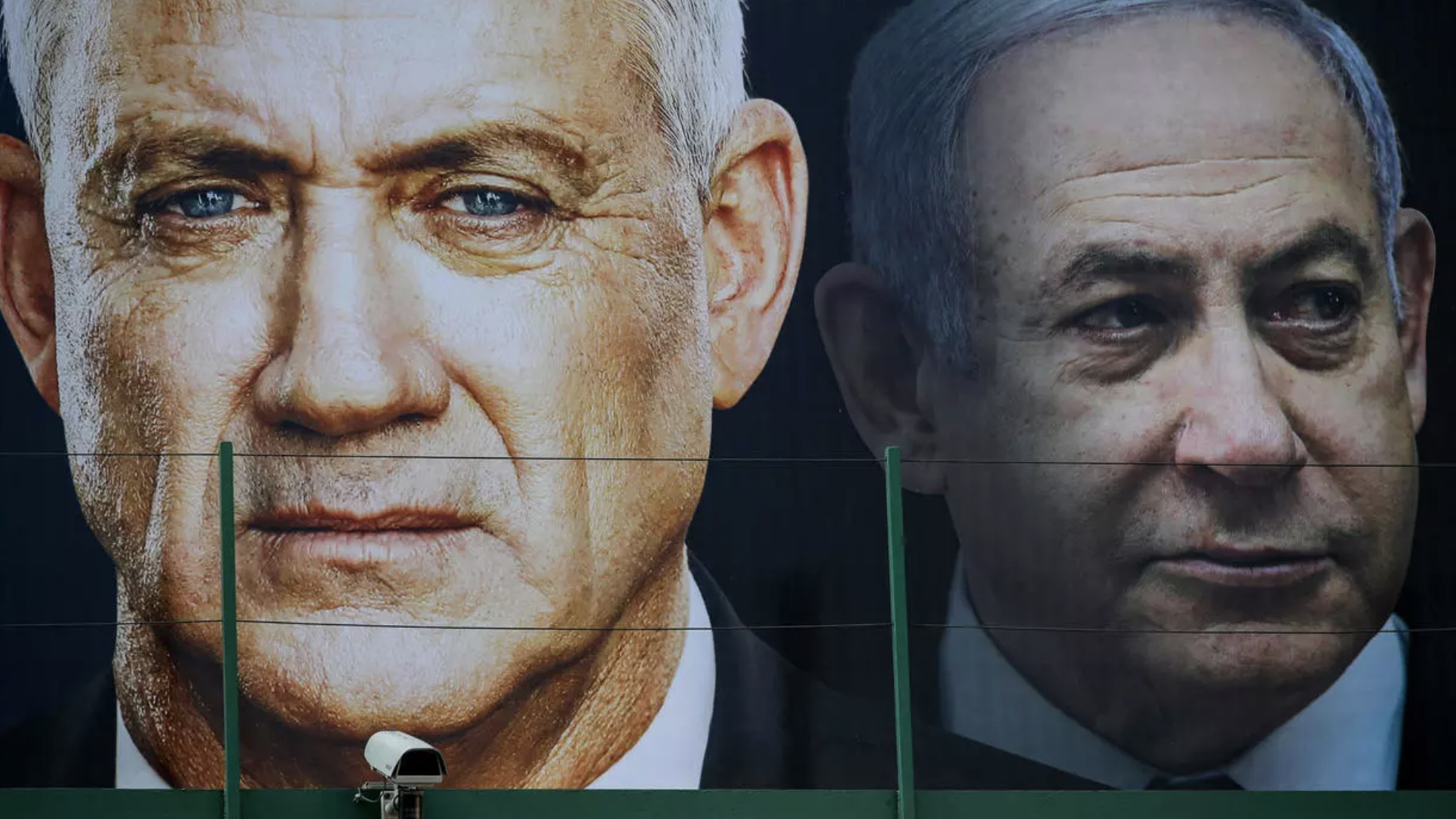Israeli Prime Minister Benjamin Netanyahu and his main rival Benny Gantz failed to strike a unity government deal in last-ditch talks late on Wednesday.
Even the medical and economic crises brought on by the coronavirus outbreak have so far failed to end an unprecedented political deadlock that has pushed Israel into three inconclusive elections in the last year, and perhaps now a fourth.
The right-wing premier Netanyahu and centrist Gantz, Israel's former army chief, have gone head-to-head in three stalemated elections over the past year.
Following the most recent vote last month, both men fell short of a majority and neither had a clear path toward a viable governing coalition.
With the COVID-19 pandemic resulting in more than 12,500 confirmed infections in Israel, there were widespread calls for an interim emergency alliance.
A Netanyahu-Gantz deal would have given the Jewish state its first stable government since December 2018 and offered a rare period of political calm during a global health crisis that is taking a devastating economic toll.
President Reuven Rivlin, who is overseeing the talks, said on Monday that progress justified his decision to grant Gantz a two-day extension to hash out a deal with Netanyahu. But Gantz's mandate expired at midnight on Wednesday after a last-minute attempt by the two leaders' envoys to clinch a deal.
Failure complicates plans for economic recovery once the coronavirus outbreak is brought under control, and the country's stringent lockdown is eased.
Read more:
Israel president denies Gantz's request for more time to form govt

A banner depicts Benny Gantz (L), leader of Blue and White party, and Israel Prime minister Benjamin Netanyahu, in Tel Aviv, Israel, February 17, 2020. /Reuters
A banner depicts Benny Gantz (L), leader of Blue and White party, and Israel Prime minister Benjamin Netanyahu, in Tel Aviv, Israel, February 17, 2020. /Reuters
Without a deal, it will be up to parliament to pick a candidate, who would then have 14 days to form a government. Failure to do so would automatically trigger a snap election.
Gantz had previously said he would not serve in a government led by Netanyahu, who is facing indictment on corruption charges but denies any wrongdoing. The trial is due to begin next month.
But the enormity of the coronavirus crisis prompted Gantz to break his campaign promise and to consider a deal, a move that angered many of his anti-Netanyahu supporters.
A Monday poll from Israel's Channel 12 news said that if an election was to be held now, Netanyahu's Likud party would see a four-seat boost to 40 in the 120-member Knesset, while Gantz's weakened Blue and White party would win only 19. The poll also found that some 64 percent of citizens were satisfied with Netanyahu's handling of the pandemic.
Israel has reported over 12,500 COVID-19 cases and at least 130 deaths. Restrictions have confined most Israelis to their homes, forcing businesses to close and sending unemployment to more than 25 percent.
(With input from Reuters, AFP)
(Cover: A combination picture of Benny Gantz (L), leader of Blue and White party, and Israeli Prime Minister Benjamin Netanyahu. /Reuters)